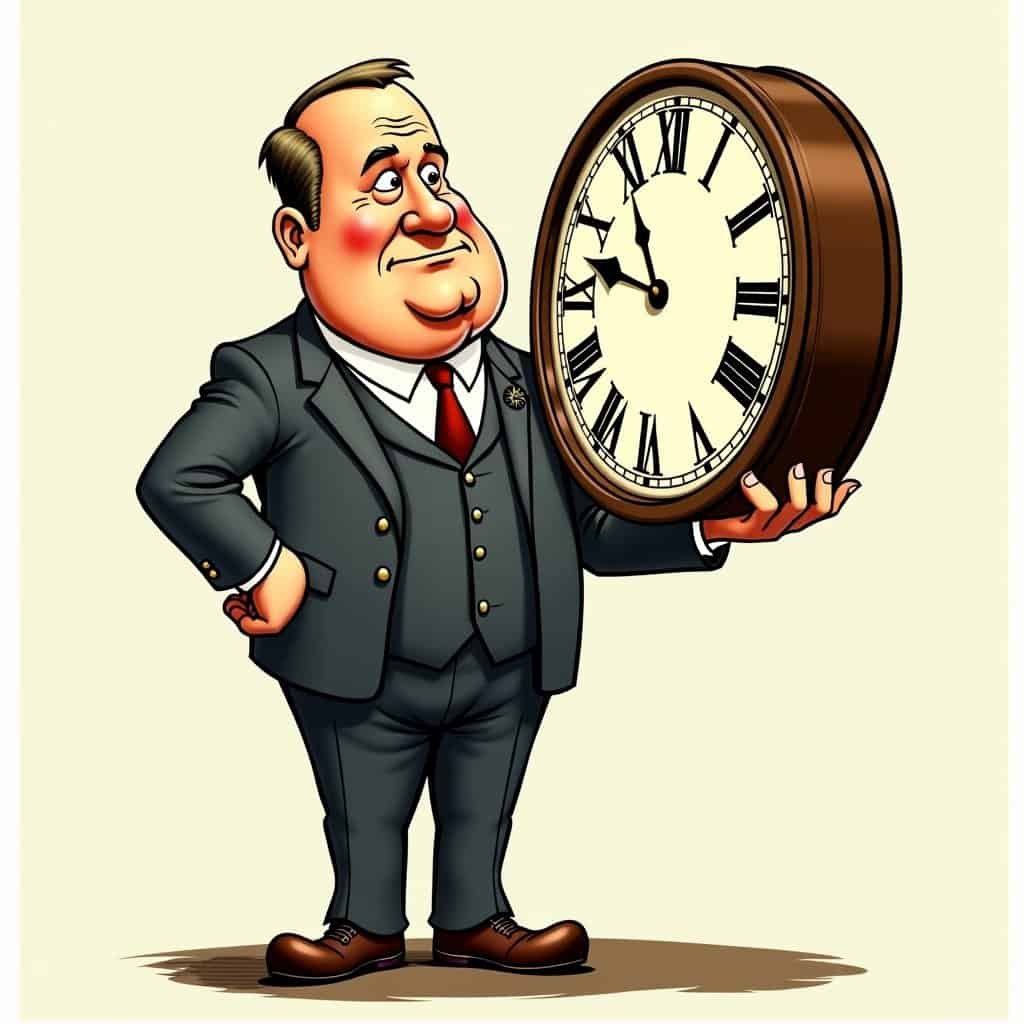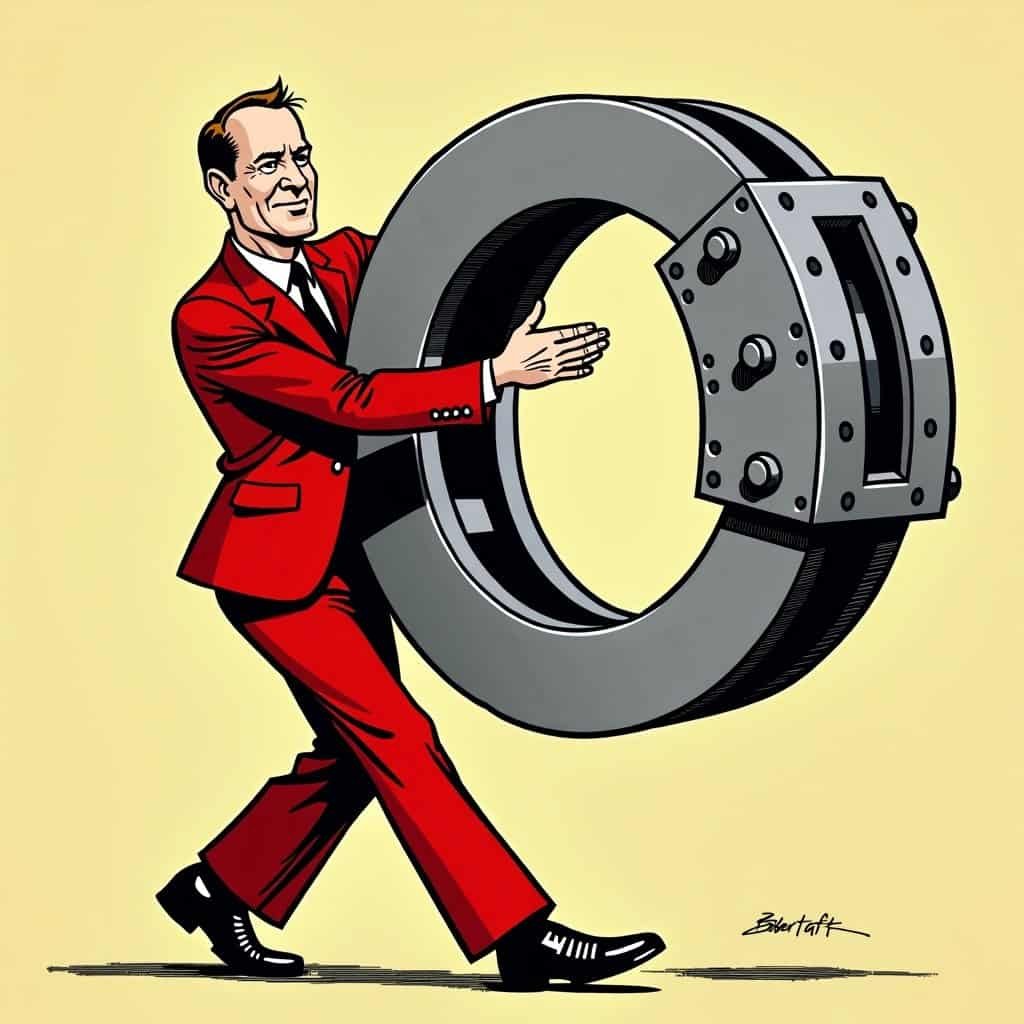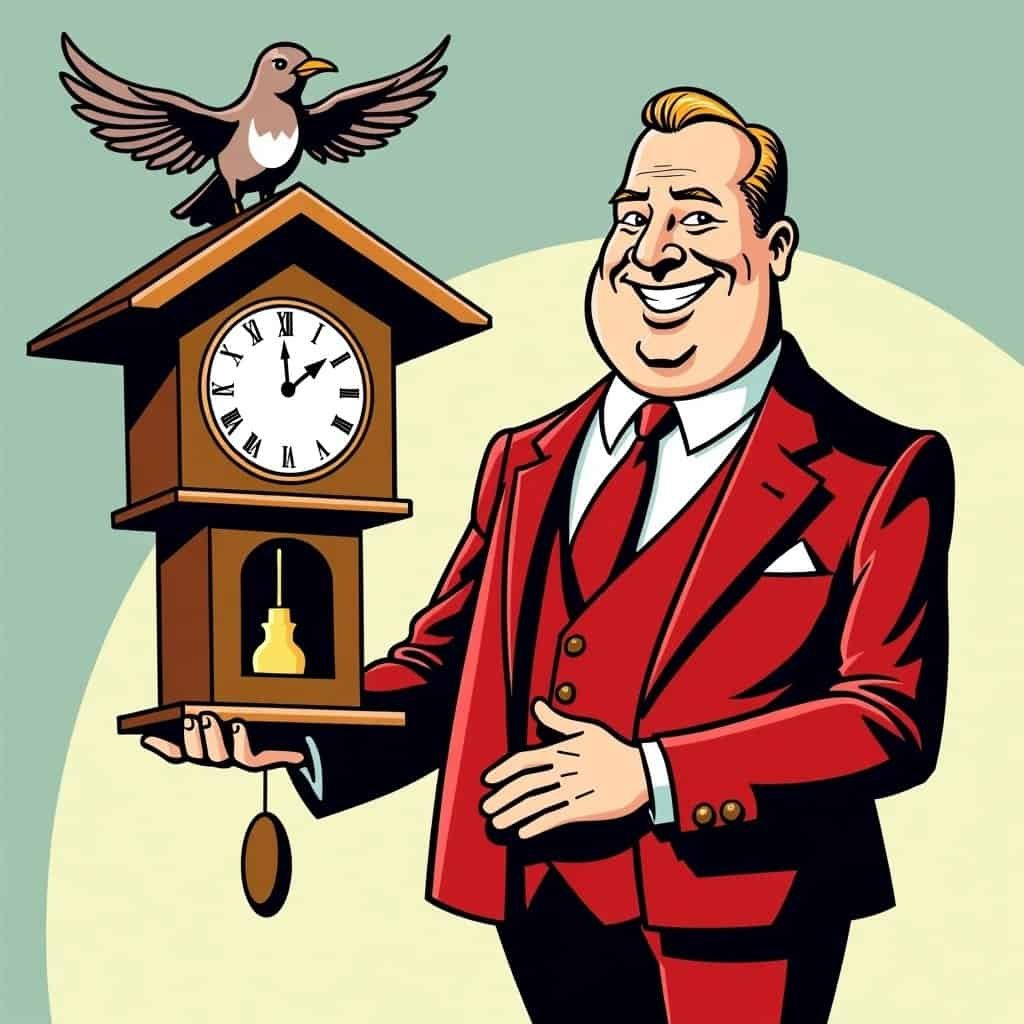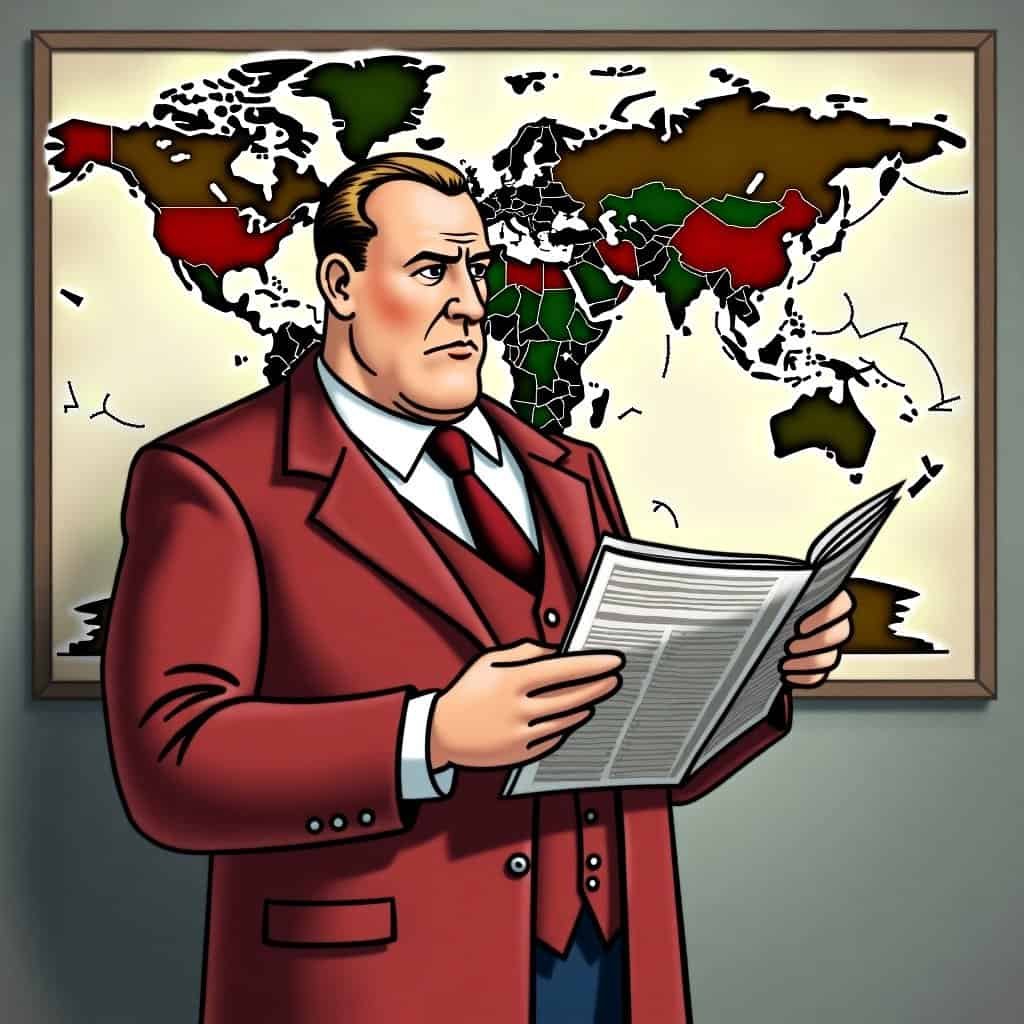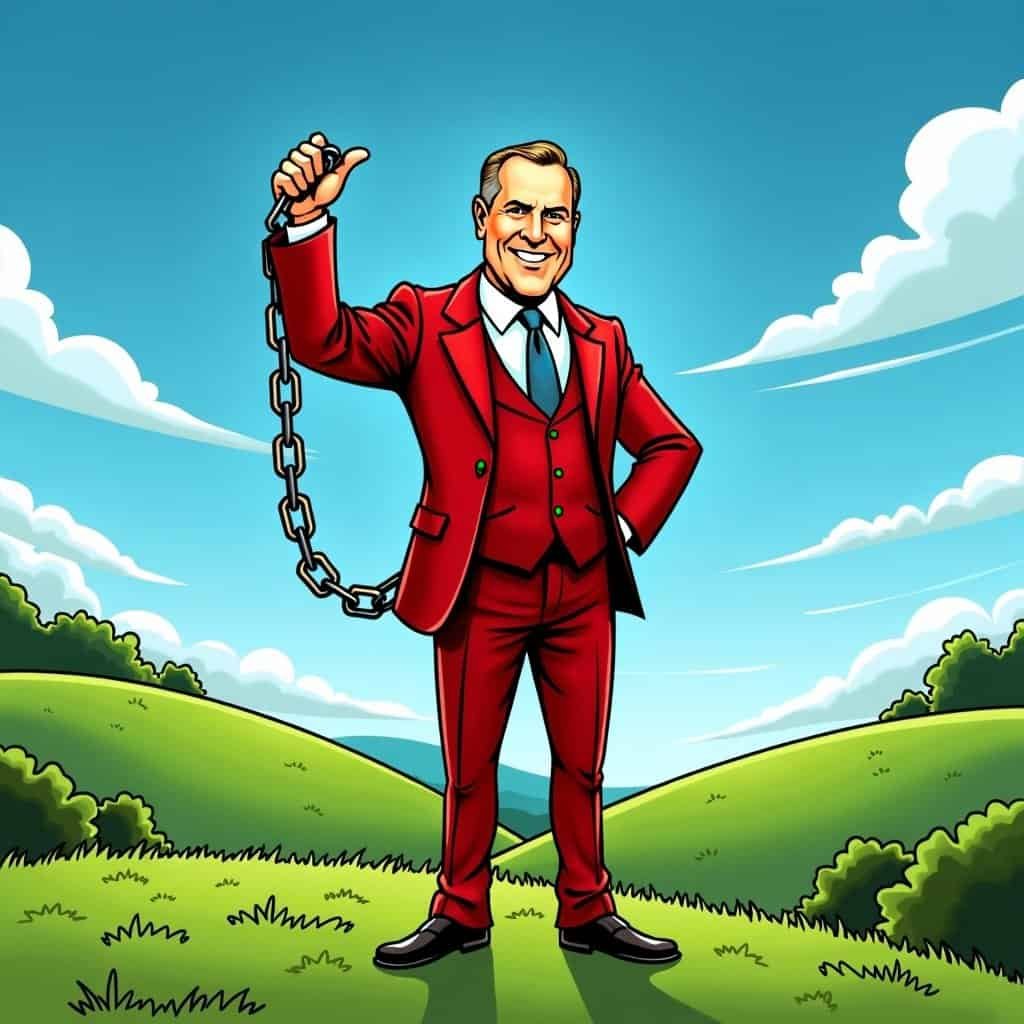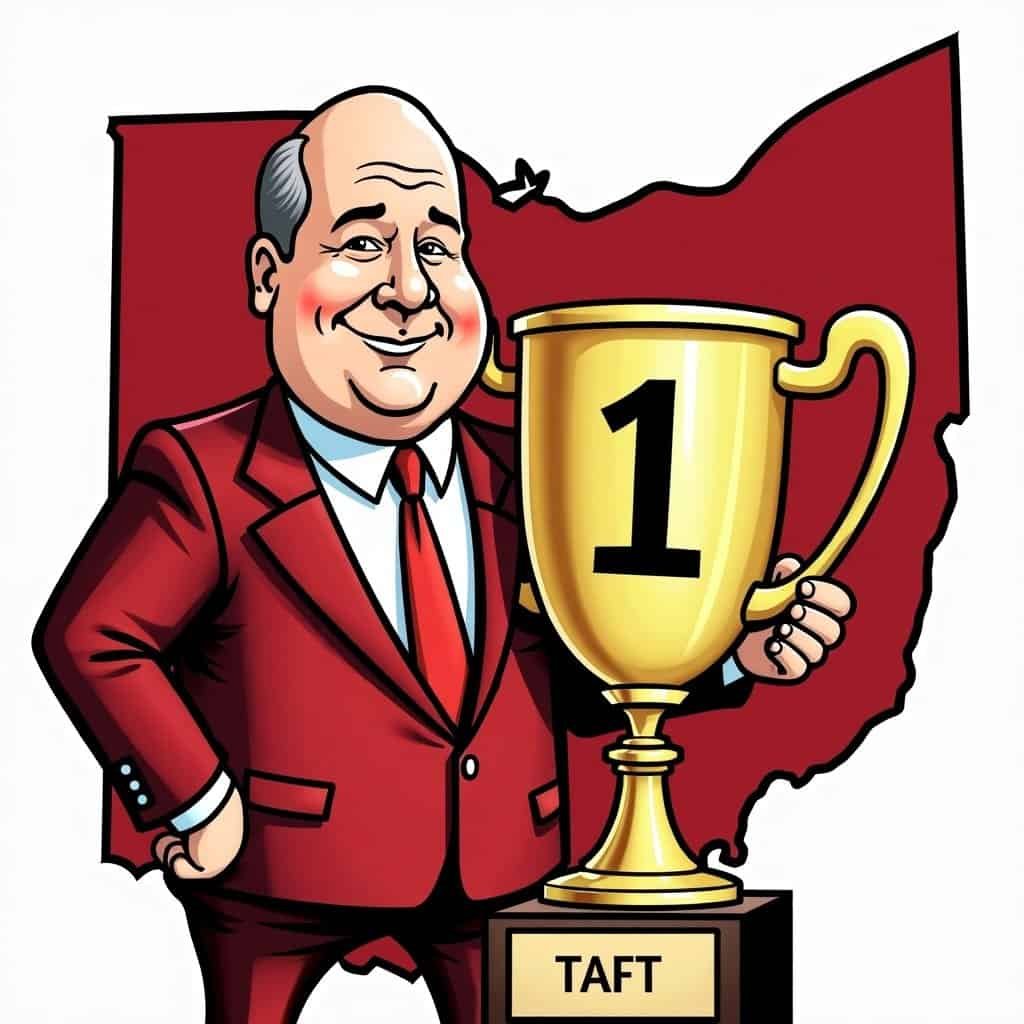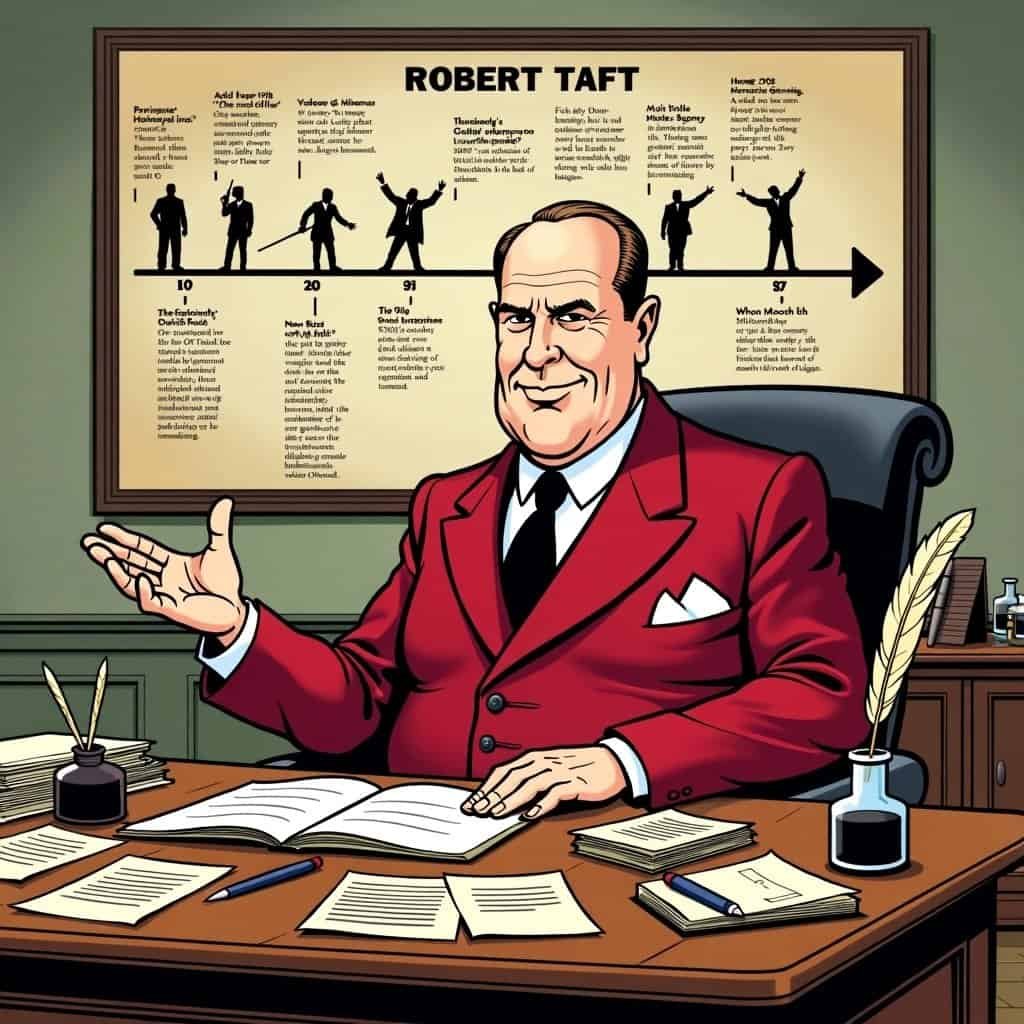Once upon a time, in the land of the Stars and Stripes, there was a chap named Robert Taft. Taft, a guy who believed in keeping government out of people’s hair, was not just any lawmaker; he was a trailblazer for conservative principles, a champion for small government and free market fans everywhere. Now, when it came to public sector unions, Taft had some ideas that might have left even a seasoned politician scratching their head—or tipping their hat, depending on which side of the political fence they sat on.
Picture this: It’s the early 20th century, jazz is all the rage, but here comes Taft, waltzing through the political scene, smoothly opposing the influence of public sector unions. And boy, did he do it with flair! He got that these unions could potentially lead to a slippery slope of government waste and money troubles. I mean, what’s democracy if not a tricky dance, best done without tripping over too much red tape?
Why did Taft’s opposition matter? Well, ol’ Bob was big on keeping what he saw as the foundation of a thriving republic—small government. He wasn’t too jazzed about unions gaining the upper hand in negotiating deals that could, over time, throw government budgets out of whack and saddle taxpayers with more bills. Basically, he wanted to make sure the government didn’t end up being Santa Claus for everyone.
Taft’s Stance on Public Sector Unions
Let’s be real here, folks. There’s a thin line between keeping the house in order and being a buzzkill at the labor union party. But Taft’s critique wasn’t just hot air. By rooting his arguments in conservative values, like being careful with money and protecting individual rights, Taft was singing the oh-so-popular tune of American self-reliance and freedom—a melody that still gets conservatives tapping their feet today.
In many ways, Taft saw the public sector union’s influence as like letting the fox guard the henhouse. After all, these negotiations could lead to a situation where union demands clash with what’s good for everyone else. This could potentially put a big strain on the government’s wallet, paid for by—you guessed it—the hardworking taxpayer.
Taft’s Legacy in Modern Politics
Even with all the union love that’s washed over the political beach since his time, Taft’s predictions seem pretty spot-on. With today’s news sometimes highlighting the money troubles faced by governments heavily swayed by hefty union contracts, there’s no shortage of people muttering, “Maybe ol’ Bob was onto something.”
The real kicker in Taft’s stance wasn’t just his opposition but his push for a government that rolls up its sleeves and tackles issues without getting tangled in endless negotiations. The focus here is on keeping individual freedoms while maintaining a strong economy—music to conservative ears.
In the big picture, Robert Taft wasn’t just saying no to unions; he was pushing for a system that respects taxpayer dollars while encouraging responsible governance. So, next time you see Uncle Sam tip-toeing through budget talks, flipping a coin to a nation-building tune, remember Taft’s warning echoing through time, saying, “Watch the balance, folks.” As nuggets of wisdom from conservative big shots often go—it’s advice that never gets old.
